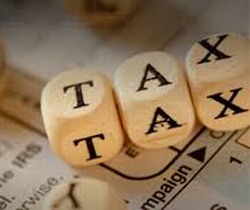November is National Alzheimer's Awareness Month, a dedicated time to shed light on the impact…

Stories and warnings of identity theft, financial fraud, and scams are an everyday occurrence; these instances are a real concern to millions of Americans. The rise of identity theft, fraud, and scams should caution us to evaluate how we store our important data, such as our tax records.
Whether stored on paper or kept electronically, the IRS urges taxpayers to keep tax records safe and secure—especially any documents bearing Social Security numbers or tax identification numbers. The IRS also suggests scanning hard-copy tax and financial records into a format that can be encrypted and stored securely on a flash drive, CD, or DVD along with photos or videos of valuables.
Since many taxpayers are already reviewing their financial and tax records in preparation for their tax filings, now is a good time to set up a system to keep tax records safe. It is also helpful to have a system in place when filing your tax returns in case the IRS asks questions about a tax return, or to file an amended return, or if you are applying for a home loan or financial aid.
If you keep your old tax records stuffed in a shoebox or obscure file somewhere in your home, then you should rethink that approach. You should always keep tax, financial, and health records safe and secure whether stored on paper or electronically. When records are no longer needed for tax purposes (see previous article How Long Should I Keep my Tax Returns?), ensure the data is properly destroyed to prevent the information from being stolen.
If you plan to dispose of an old computer, tablet, mobile phone or backup hard drive, you should be mindful that it may include important personal data. You should remove this data by using special disk utility software before disposing of your old devices or hard drives.
Eric J. Einhart
Russo Law Group, P.C.
100 Quentin Roosevelt Blvd., Suite 102
Garden City, NY 11530
800-680-1717





Comments (0)